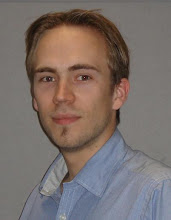 Last week I had the chance to visit the International Criminal Tribunal for the former Yugoslavia (ICTY), the International Criminal Court (ICC), and some NGOs working in the humanitarian aid and peace-building sectors in Amsterdam and The Hague. A group of fellow students at the University of Tübingen had organised the trip and I was lucky enough to join in on rather short notice. Apart from Amsterdam being a gorgeous city and The Hague having a beach that is surely worth a visit in summer time, we met a lot of interesting people at the organisations we visited.
Last week I had the chance to visit the International Criminal Tribunal for the former Yugoslavia (ICTY), the International Criminal Court (ICC), and some NGOs working in the humanitarian aid and peace-building sectors in Amsterdam and The Hague. A group of fellow students at the University of Tübingen had organised the trip and I was lucky enough to join in on rather short notice. Apart from Amsterdam being a gorgeous city and The Hague having a beach that is surely worth a visit in summer time, we met a lot of interesting people at the organisations we visited.
In Amsterdam we met with people from The Association of European Parliamentarians with Africa (AWEPA), an association of European parliamentarians working with African parliamentarians to further peace and development in Africa. The visit was somewhat of an eye-opener as people at AWEPA made us aware of the democratic deficits of many NGOs working in Africa that bypass parliaments to work directly with the government or civil society organisations and thus block the emergence of a strong legislative branch.
Later in the Hague we met with people from Cordaid, a large humanitarian NGO with catholic roots that gets most of its funds from Netherlands' government. Before moving to the ICTY and the ICC we also visited the International Water Association that has it's headquarters in The Hague.
For me the most interesting side-effect of the visit was to hear about peace-building and conflict resolution from two sides that are often pictured as opposites, namely humanitarian organisations focusing on alleviating suffering and working for peace, and international tribunals and courts, focusing on justice in order to ensure durable peace.
Humanitarian organisations like Cordaid have a relatively flexible stance towards conflict parties accused of war crimes and crimes against humanity. Their loyalties lie with the people suffering on the ground. While they do support the ICC, they also do support peace negotiations with people indicted by the ICC when there is a realistic chance for peace.
Prosecutors of international courts and tribunals on the other hand are not happy to see this. They try to isolate the persons indicted by the courts and pressure the international community to arrest them. The last thing they want to see is that alleged war criminals cut deals and blackmail governments and states into a peace deal that ensures their immunity.
As a consequence, peace and justice seem to be at odds sometimes. Interestingly, there are different opinions about this even within the tribunals. We had the chance to talk to a judge and some persons working in the office of the prosecutor. While the judge emphasised that courts deliver justice and are not responsible for peace, the position that courts can further peace through justice was defended by prosecution staff. The prosecutors focused on the many mis-perceptions about the work of tribunals and courts. Indeed, they convincingly argued that many of the allegations, essentially stating that courts try to achieve justice at the price of peace, result from propaganda efforts of the very same conflict parties that are being prosecuted.
The point both judges and prosecutors had in common was to maintain the argument that law cannot be compromised for the sake of politics. In my opinion this is a somewhat problematic position in the world we are living in today. While on the national level the state is the single most powerful actor and can eventually enforce the law, such a guarantor of law is missing on the international level. Thus warlords, militia leaders and heads of state will always try to get away with murder by bargaining, blackmailing and threatening. As long as the international community lets these people get away with their demands to be exempted from the law, there will always be discussions about peace and justice. In some cases, the people living in the conflict regions may end up on the losing side of these discussions.

ICC building in The Hague, front entrance
Top left picture: ICTY building in The Hague

Keine Kommentare:
Kommentar veröffentlichen